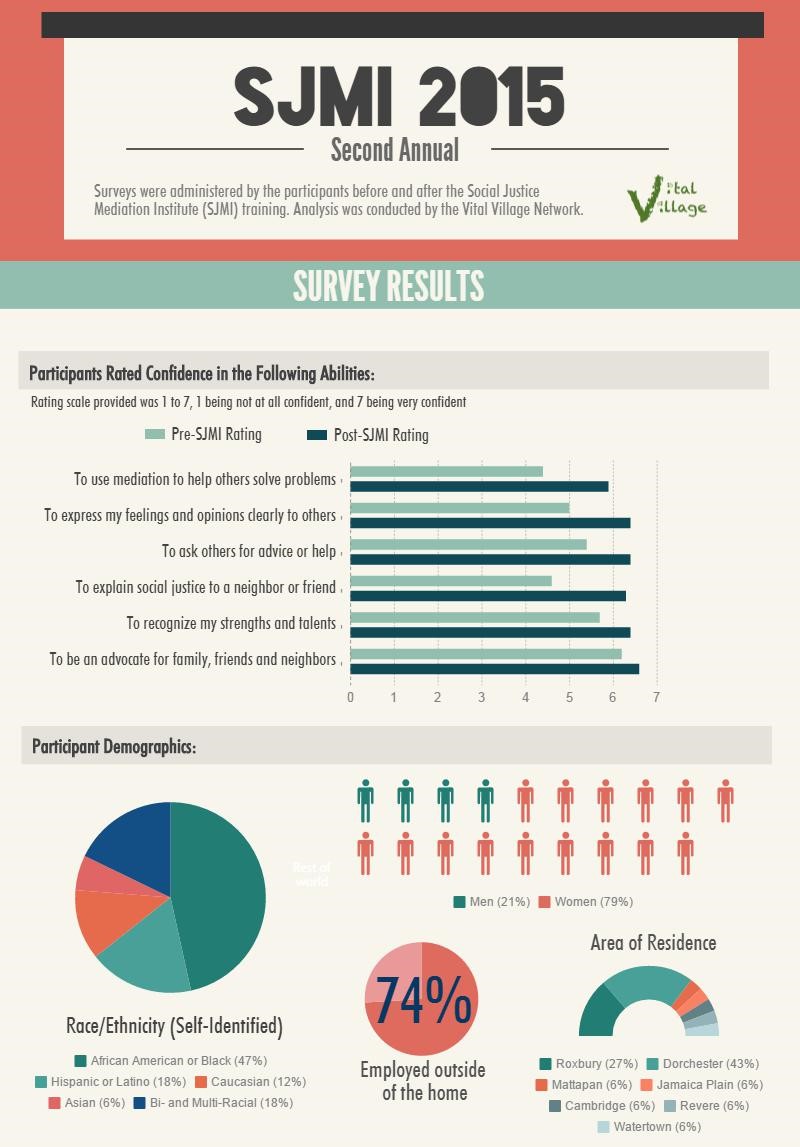The Social Justice Mediation Institute: Training Community Members in Conflict Resolution
Last October, Vital Village Network, in collaboration with Medical-Legal Partnership Boston, and the Dudley Street Neighborhood Initiative (DSNI), hosted the second annual Social Justic Mediation Institute (SJMI). Learn more about what distinguishes SJMI from other training models, the strength of our participant class of 2015, and how we collected data to measure program outcomes.
Purposeful Design and Implementation
The SJMI 2015 training session was attended by a diverse, engaged group of community leaders and residents, 80% of whom live in “majority-minority” neighborhoods of concentrated poverty. The 40-hour training took place over 5 days, and was attended by 19 participants.
Through peer-to-peer learning and expert facilitators, SJMI participants learned skills necessary to voice their needs and advance their standing in all facets of their lives: educational, professional and personal development, communal and medical.

The SJMI model is distinguished from other mediation trainings through its focus on social justice. The skillful SJMI facilitators conceptualized the lens of social justice, and put theory to practice through interactive exercises and role-play. Another fundamental component of the program was the opportunity for participants to interact with and learn from other community leaders from varied neighborhoods, cultural backgrounds and fields of work. The important implications of these peer-to-peer connections cannot be understated.
Now several months following the 2015 training, we are afforded the hindsight to reflect productively on the event. Statistical analyses of the surveys administered before and after SJMI strongly indicate the success of the program. In one question, participants were asked to rate their confidence in certain abilities on a scale of 1 to 7 (1 being not at all confident, and 7 being very confident). Following the SJMI training, participants self-identified increased confidence in abilities such as recognizing their own strengths and talents, and serving as an advocate for themselves and their family. Certain competencies, such as the ability to help others solve problems using mediation, showed a 45% increase in self-identified confidence level.

In another question, 100% of participants agreed that the SJMI training prepared them to address challenges in their own life. Similar levels of agreement were given with respect to SJMI having prepared participants to improve the communities where they live, have more productive “difficult conversations” with people in their personal lives, and get what they need from community stakeholders (teachers, doctors, landlords, government programs, etc.). By thinking reflectively and employing comparative analysis, we aim to effectively close the feedback loop.


